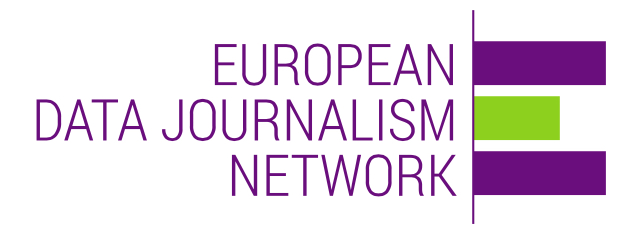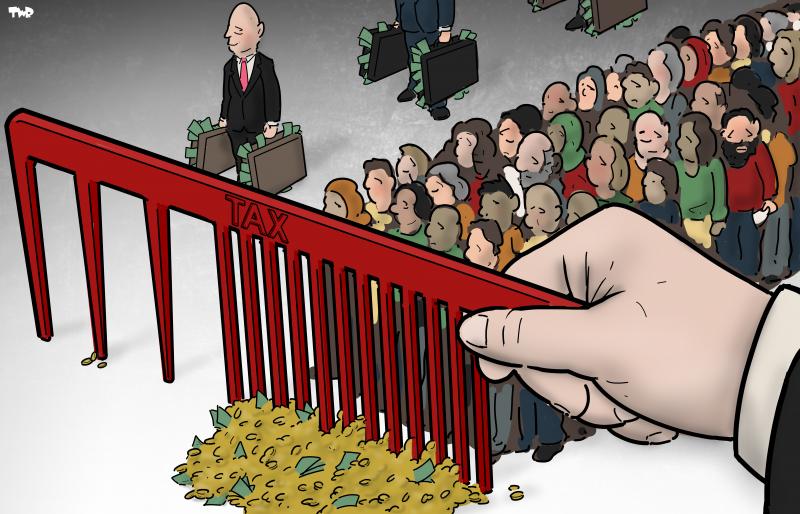Introducing a European tax on large fortunes and using this income to help finance the fight against climate change and social inequality: this is the political project initiated by Aurore Lalucq MEP and Belgian Socialist Party leader Paul Magnette. While it might sound Utopian, their idea has in fact become a European Citizens' Initiative (ECI), and was validated in July 2023 by the European Commission. In order for their project to move forward, the two politicians have one year to collect one million signatures in at least seven EU countries. Since they officially launched their initiative on 9 October 2023, this means they have until October 9 to reach the million mark.
Why fight this battle? Because study after study has shown that the very, very rich pay less tax in Europe than the rest of the population. And at a time when the capital needed for an ecological transition is in short supply, this is a flagrant injustice that needs to be corrected.
Europe’s glaring inequalities
It's not easy to know precisely the level, distribution and dynamics of wealth in each European country, let alone compare them. To obtain "distributional wealth accounts", i.e. accounts divided by types of household according to income and wealth, it is necessary to combine data from national accounts, household surveys, etc. Fortunately, the European Central Bank (ECB) embarked on this exercise in January 2024: its monetary policy does not have the same effects on each level of inequality, hence its interest in the subject.
There is much to be learned from these recent statistics from the central bank, which are, for the moment, presented as experimental. The data, covering 2009-2023, shows that the 50 percent least well-off Europeans held an average of just 4.8 percent of the zone's net wealth over the period. Conversely, the richest 5 percent held an average of 43.1 percent of the total. A genuine abyss.
And as is often the case, the average conceals contrasting situations. One can even say very contrasting, within the eurozone. In the Netherlands, for example, the wealthiest 5 percent account for 31.7 percent of net wealth, compared with 53.5 percent in Austria; France is below the European average over the period at 39.8 percent; Germany and Italy are among the most unequal countries. Europe may have tried its best to be an institution for several decades now, but its economies and societies are not marching in step.
When we proceed to study the unequal dynamics of the zone as a whole, over the available period, we are struck by the fact that the wealthiest seem to benefit greatly from periods of crisis. In 2009, at the height of the global financial crisis, the richest 5 percent held 41.5 percent of the zone's wealth.When the crisis hit Europe in the early 2010s, as populations struggled to get by in the midst of widespread austerity policies, the wealthiest saw their share of wealth rise to 44.4 percent by early 2015. The subsequent loosening of fiscal policies, and muscular intervention by the ECB - Mario Draghi's famous "whatever it takes" - was accompanied by a fall in the share of wealth held by the 5 percent. Before 2020 and 2021, we see this share rise again in the midst of a pandemic.
It's no scoop that during periods of severe crisis, people at the bottom of the ladder, who have only their jobs and salaries to live on, suffer more than those at the top, who benefit from booms in the stock market, real estate and capital income. This has been particularly striking in Europe over the past fifteen years.
High levels of wealth inequality wouldn't be too much of a problem if Europe's richest paid their fair share of taxes, but this is less and less the case. At the most general level, Europe's tax dynamic over many years has been clear: almost every country has abolished its wealth tax. Thirty years ago, a dozen European countries - including Germany, France, Spain, Denmark and Sweden - specifically taxed the wealth of the very rich. These taxes were not perfectly implemented, and their base was narrow due to numerous exemptions (residential property, business assets, etc.), which reduced their yield, but they had the merit of existing. By now, they have been swept away by liberal logic.
Similarly, as the latest European Commission report on tax trends shows, the marginal tax brackets for the highest incomes have been lowered. The same applies to the tax rate on profits. This is the first step in taxing the richest, since untaxed profits are used to distribute dividends, which are concentrated in the hands of the very wealthy.
Studies are becoming more widespread
In short, one does not fully explain the other, but the increased concentration of wealth in the hands of the wealthiest is concurrent with the reduction of wealth taxes. Not to mention, it is among those who hold the most wealth that we find the most aggressive tax optimization and use of tax havens.
What is the result of all this? In plain terms, how much do the very rich actually pay in taxes? The answer to this question is far from obvious. In fact, it was even impossible to answer until recent years. But studies are starting to become more common, But studies are becoming more widespread, and those that are already available point to the same result: the wealthiest in European countries are taxed less than other taxpayers in their own countries.
In order to assess the tax rate of the very wealthy, we need to know exactly how much income and wealth they have, which is not available in official statistics. For example, a portion of the income of the very wealthy comes from the dividends they receive from owning company shares. But these shares may be held through shell companies or holding companies, in the hands of the wealthy, which do not distribute dividends: untaxed capital income, even though it feeds the wealth of the richest.
This is just one example of the difficulties involved in accurately estimating the incomes, wealth and tax rates of the very rich. Economists have tackled the problem by aggregating anonymized data on income taxation, surveys, national accounts and so on. It's a serious undertaking, still rare, but one that's beginning to spread.
In France, for example, a study by the Institute for Public Policy published in 2023 shows that the income tax rate is gradually falling from 46 percent for the richest 0.1 percent, to 26 percent for the top 0.0002 percent: in other words, the 75 households at the top of the distribution, for whom wealth is counted in billions. Why is this so? Because the wealth of these ultra-rich is largely made up of undistributed dividends, subject to corporate income tax, which has been falling for several years (a result obtained based on 2016 data, when this tax was higher than it is today).
The same is true of Italy: an analysis published in early 2024 shows that the tax system is somewhat progressive, but that it changes direction from the wealthiest 5 percent upwards, with their tax rate at around 36 percent, compared with 40-50 percent for lower incomes. The authors of the study extend their analysis to taxation of net wealth and confirm the result: the more a person’s wealth increases, the less they are taxed, with the poorest 25 percent facing a rate of 52 percent, and the richest 0.1 percent facing a rate of 36 percent.
Similar work in the Netherlands, also combining macro and microeconomic data, produces the same result: the average tax rate for 99 percent of the population is between 40 and 50 percent, then starts to fall from 1 percent upwards, ending up at 21 percent for the top 0.01 percent. The same results can be found in the United Kingdom.
A tax injustice that must be corrected
We can only hope that other researchers will take up the topic in other European countries, but the available evidence already points to the same conclusion. Today, in Europe, the very wealthy concentrate a great deal of wealth, and are taxed less than others. The main reason for this is that capital income is under-taxed relative to labour income. A recent study by the Organisation for Economic Co-operation and Development (OECD) shows that the tax gap between these two types of income is significant, averaging around 12 percentage points in OECD countries (9.5 points in France) in favour of capital income.
So, yes, implementing a European wealth tax on the richest one or even 0.1 percent would make it possible to correct a tax injustice that results in the very wealthy being taxed less due to their income from financial rents being taxed less than labour. It's time to turn the tide. Tax the rich!
👉 Original article on Alternatives Economiques

In partnership with the European Data Journalism Network
Was this article useful? If so we are delighted!
It is freely available because we believe that the right to free and independent information is essential for democracy. But this right is not guaranteed forever, and independence comes at a cost. We need your support in order to continue publishing independent, multilingual news for all Europeans.
Discover our subscription offers and their exclusive benefits and become a member of our community now!












